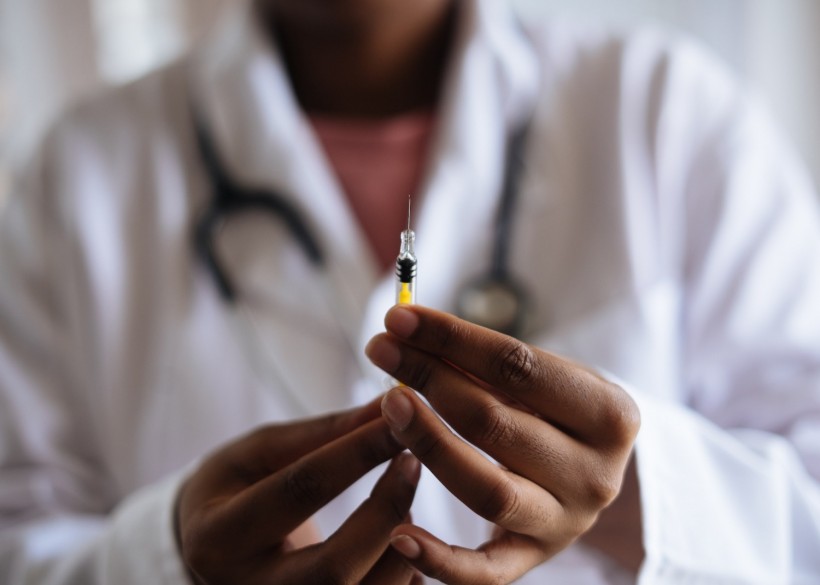Contract development and manufacturing organization (CDMO) Samsung Biologics is focused on sustainable growth, says CEO John Rim. According to Rim, a key component of this growth will be the CDMO's expanded mRNA vaccine production capabilities, as well as its recent full acquisition of Samsung Bioepis, a biosimilars company that had previously been operated as a joint venture with Biogen.
"Samsung Biologics has been continuously exploring new opportunities to diversify its business portfolio beyond its current primary business as an antibody CDMO," said Rim in the company's annual letter to shareholders.
In 2021, Samsung Biologics helped manufacture the first mRNA vaccines for COVID-19, providing fill/finish services for Moderna's vaccines in South Korea. The CDMO has decided to build on these capabilities, developing an end-to-end mRNA vaccine production suite that began operations in 2022 with a commercial-scale manufacturing run of GreenLight Biosciences' mRNA COVID-19 vaccine candidate.
"This demonstrates a major achievement in our continuing goal to offer one-stop, end-to-end mRNA production from drug substance to aseptic fill/finish to commercial release, all from a single site, as we strive across our biomanufacturing network to fight the pandemic," said Rim in a press release announcing the completion of the project's first manufacturing run.
In addition to its diversification through expanded mRNA vaccine production capabilities, Samsung Biologics has turned its attention to biosimilars, cost-effective therapeutics based on biologic reference medicines. After operating Samsung Bioepis as a joint venture for 10 years, Samsung Biologics acquired Biogen's 50% stake in the biosimilars company in 2022 for approximately $2.3 billion.
According to Rim, the acquisition "marks a significant milestone for Samsung Biologics in our continued venture into the biosimilar business and accelerating biosimilar growth. By leveraging our extensive experience as a leading CDMO, we will further contribute to saving lives of the patients and address a wide array of diseases."
While Samsung Biologics continues to rely on its core business of producing monoclonal antibodies, its expansion of mRNA vaccine production capabilities and increased investment in biosimilars signal that the CDMO is also focused on portfolio diversification as a pillar of its growth strategy.
End-to-End mRNA Vaccine Production
Moderna and Pfizer's COVID-19 vaccines were the first mRNA vaccines approved for human use. As a CDMO, Samsung Biologics has helped meet the unprecedented demand for mRNA vaccine production brought on by the pandemic.
It initially focused on the drug product side of mRNA vaccine production, but it has now expanded its capabilities to provide drug substance services. This means that Samsung Biologics can both produce the mRNA that functions as the active substance in a vaccine and transfer that substance to vials and package them.
Samsung Biologics' drug substance process involves linearizing circular plasmid DNA molecules using enzymes and nucleotides to create a molecule that can be capped and transcribed into mRNA. The mRNA is synthesized and purified using chromatography and diafiltration, then encapsulated with lipid nanoparticles to ensure the molecules retain their stability in a vaccine.
Once the drug substance is developed, it's stored in refrigerated conditions as low as minus 70 degrees Celsius, then transferred to a sterile vial in an aseptic fill/finish process that involves precise filling, dispensing, and sealing systems in clean room environments.
Combining these drug substance and drug product capabilities for an end-to-end approach has the advantage of minimizing the risk of degradation that can occur in transport, and it gives Samsung Biologics the capability to efficiently scale mRNA vaccine production projects.
At this point, mRNA vaccines have only been approved for COVID-19 immunization, but researchers are pursuing several other potential applications, including treating heart disease and cancer, and immunizing against other contagious viruses. Because mRNA is easily edited and mRNA vaccine production can be quickly scaled, mRNA is seen as a particularly effective option for combating fast-mutating viruses and for precisely targeted therapeutics.
Samsung Biologics' end-to-end mRNA vaccine production capabilities leave it well-positioned to meet potential increases in demand as these technologies develop and the broader biopharmaceutical industry continues to shift toward a heavier reliance on CDMOs.
"In the past, pharma companies looked at CDMO partnerships and dual sourcing primarily as a risk mitigation exercise. However, pharma is now realizing that its core competencies are in R&D rather than in building and maintaining manufacturing facilities, leading to a greater degree of outsourcing," explained Rim in a recent interview. "I foresee that trend continuing, particularly in an environment of constrained supply chains post-COVID."
Samsung Bioepis and Biosimilars Growth
Samsung Biologics' expansion of mRNA vaccine production capabilities is part of a broader portfolio diversification strategy. The CDMO has grown significantly in recent years and continues to invest in development.
Samsung Biologics has experienced "year-on-year sales growth of 35% over the last few years with operating income margins in the 30th percentile," explained Rim.
The company has reinvested part of this income into acquiring Samsung Bioepis with the goal of building on a business that already includes approved biosimilars for applications in immunology and oncology, as well as a pipeline of biosimilars for hematology, gastroenterology, ophthalmology, and endocrinology applications.
The second quarter of 2022 was the first in which the company reported consolidated earnings from Samsung Biologics and Samsung Bioepis, with total revenues of 651.4 billion KRW (approximately $453 billion), operating profit of 169.7 billion KRW, and net profit of 152 billion KRW. Samsung Bioepis earned 232.8 billion KRW in revenue for 24.2% year-over-year growth, and its operating profit of 58.5 billion KRW increased by 95.7%, signaling significant growth in the biosimilars market.
"Health authorities across the globe are recognizing biosimilars as a cost-effective solution that will bring medical products to larger populations and also enable better government spending," said Rim.
Strategic Growth
Rim explained that portfolio diversification is only one pillar of the company's multidimensional growth strategy. In addition to pursuing mRNA vaccine production and biosimilars, the company continues to build on its industry-leading manufacturing capacity.
It will add 240,000 liters of manufacturing capacity with the completion of its fourth plant - part of which has been operational since October 2022 - at its Songdo, South Korea, headquarters in 2023, giving the CDMO a total of 604,000 liters of capacity, the most in any single location in the world. It also recently acquired 357,366 square meters (about 88.3 acres) of land in Songdo for the construction of its second Bio Campus, which will be 30% larger than the CDMO's current Bio Campus.
For Rim, it's important to focus on building on the company's established strengths and to continue to pursue innovative new biologic technologies.
"Our culture, as encompassed in the 'Driven. For Life.' motto, is based around a purpose, commitment, and unrelenting will to build a better future for all humanity, which brings our teams together to serve clients and patients and shows through in our financials."
© 2024 NatureWorldNews.com All rights reserved. Do not reproduce without permission.
* This is a contributed article and this content does not necessarily represent the views of natureworldnews.com

![Great White Sharks Observed for the First Time Changing Their Behavior in Different Marine Environments [Study]](https://1471793142.rsc.cdn77.org/data/thumbs/full/70251/280/157/50/40/great-white-sharks-observed-for-the-first-time-changing-their-behavior-in-different-marine-environments-study.jpg)

![Origin of Life: Discovery of Lava Being a Building Block of Life Hints 'Humans Have Volcanic Origins' [Study]](https://1471793142.rsc.cdn77.org/data/thumbs/full/70262/280/157/50/40/origin-of-life-discovery-of-lava-being-a-building-block-of-life-hints-humans-have-volcanic-origins-study.jpg)


